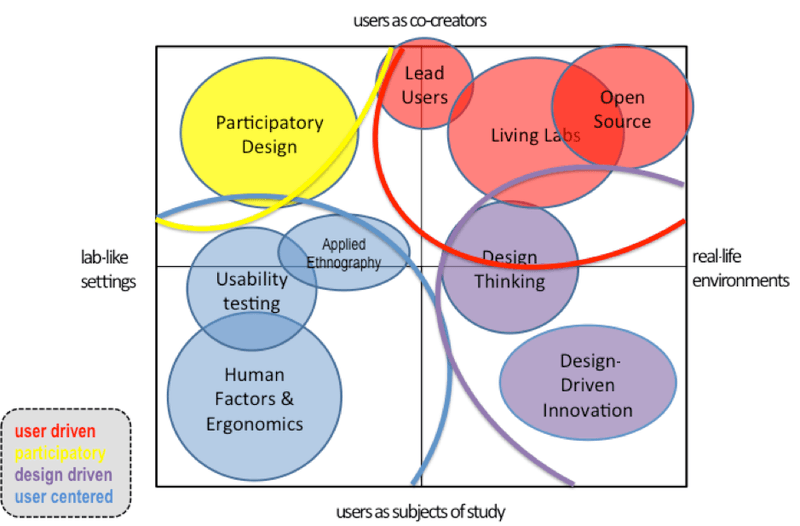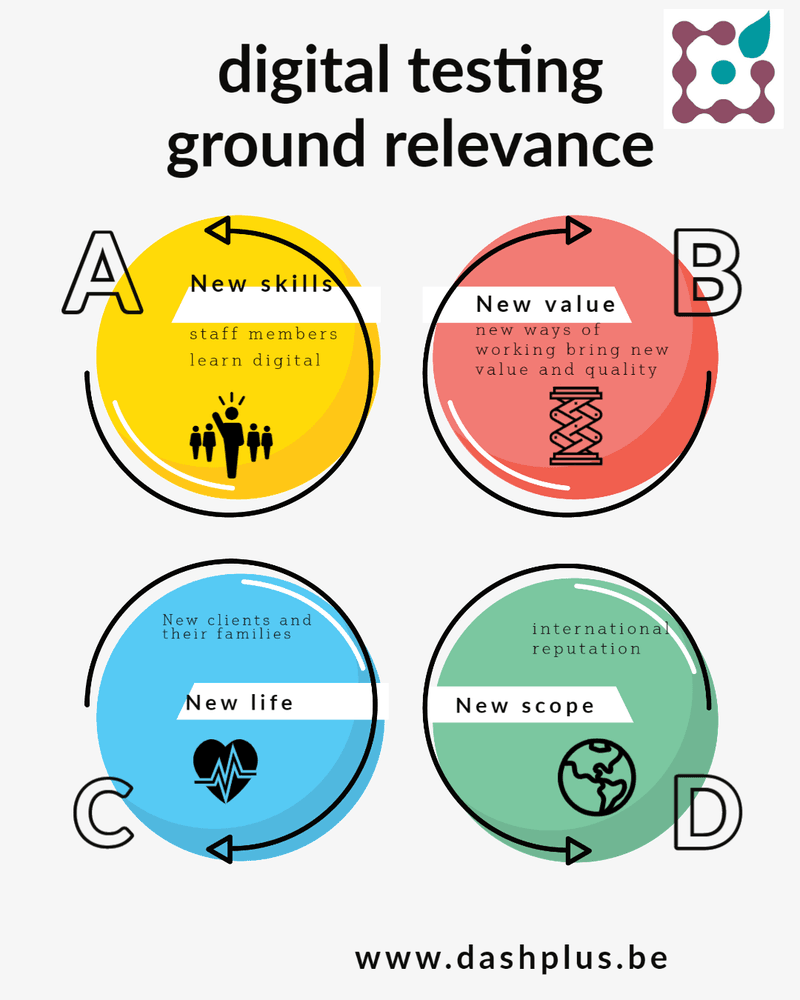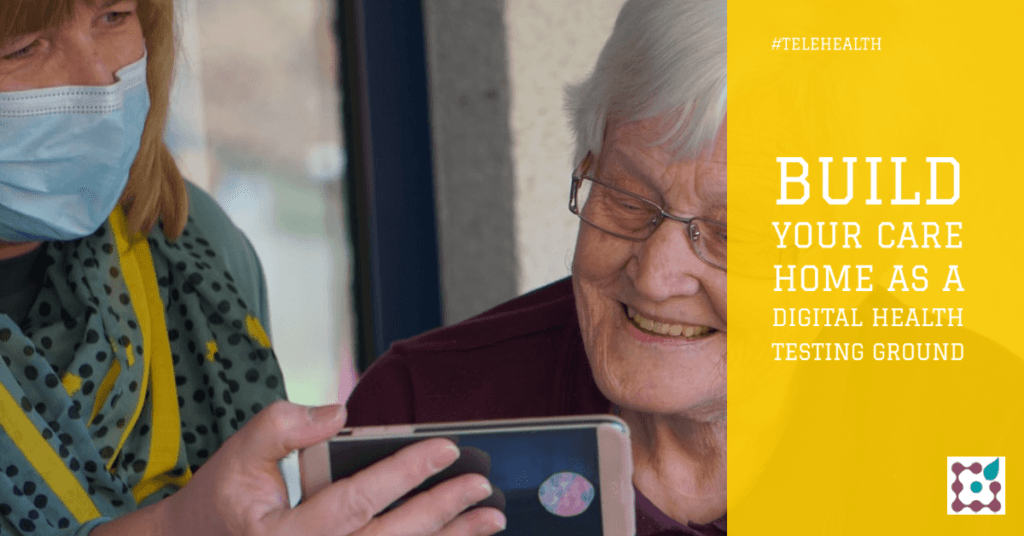Now that the covid_19 pandemic is opening a window of opportunity for telehealth applications and investments in the domain are at an all-time high, the opportunities for digital health startups seem to have never been greater.
But there is a danger
The new way of working has not yet become a commodity:
- healthcare providers are all too quickly reverting to 'old' ways of working again
- there is a lack of knowledge and familiarity about how telehealth can be optimally introduced into healthcare processes and
- digital health has not yet been introduced everywhere: some players still have to start from scratch
Despite a high level of user satisfaction: 75% of all people using teleconsultations are very satisfied, according to a recent survey of Belgian public health insurers. And that’s only one of the reasons to widely implement digital health solutions…
That got me thinking:
How can we seize this opportunity and consolidate it? How can we use the open door for digital health to make healthcare professionals more familiar with it and adapt care settings to new clients needs: safe and small-scale care based on a holistic view of mankind?
The answer: digital testing grounds (or living labs) can be for healthcare entrepreneurs what corporate venturing is for large companies.
Let me explain.
What are living labs?
Recent years, countless so-called living labs have been set up in Europe with activities in very diverse sectors. These are collaborations between (mostly) public actors and research and development stakeholders with SME’s and patients, with the aim of co-creating, designing, developing and testing new products and services in healthcare. Typical for all living labs is that end users are involved in every phase of their activities. So innovators using the living lab facilities receive fast and real-world input and feedback on their new products and services.
Although healthcare living labs may be different from each other, this is what they have in common today:
1) they are set up and managed by consortia of research organisations, governments and healthcare providers.
2) they are largely financed by public funds or use public funds to co-finance companies who use their services
3) the services offered are mainly in the co-creation phase of innovation

4) living labs are often set up in the context of regional economic development; their focus fits within this regional policy.
5) given the multitude and diversity of stakeholders involved, stakeholder management is an important task within living labs
6) each of the labs has processes in operation around 5 blocks: innovation initiatives, technical development, monitoring and evaluation of the projects within the lab, organizational management and deployment.
7) they often find it difficult to find a sustainable business model: research from Interreg Europe showed that problems in defining customers, cost structure and income streams.
Healthcare corporate venturing
On the other hand, the popularity of healthcare corporate venturing has also been growing recently. It’s a strategy for mature players to innovate outside-in: collaboration with healthcare startups accelerates their own internal innovation. Mature companies as well as many hospitals are developing such a strategy. Corporate venturing does require a solid budget investment from the player, either via of-the-shelf-budget or via a fund.
Typical of corporate venturing is the win-win setup both for the mature player and the startup or scaleup. Moreover, corporate venturing is situated in the implementation phase of innovation: the goal is to embed new solutions in the corporate business model.
Until now, healthcare corporate venturing has been a matter for larger players, such as Google, AXA, 3M, Novartis and others; and it should come as no surprise that venturing activities continue to increase in 2020.

But what to do if you are small?
What do you do if you want to secure future value in a changing healthcare landscape? Or if COVID has made you realise that change will be necessary? How to remain attractive to customers and employees?
You can:
1. connect to a living lab
2. develop your own digital testing ground
In the second option, you work out a form of collaboration with startups and scaleups on a specific topic, for example measuring the quality of care or hygiene. You set up several internal test trajects, determine what you want to learn from the test and what input each of the parties will make. After the test period, there are various options: scaling up outside the testing ground, a customer contract for internal scaleup, further testing, participation or IP assurance, communication and labelling, … Or a combination of these.
Research shows us this kind of collaborations can lead to:

Of course, developing your own digital testing ground is not a walk in the park. It takes a structured approach and ‘start thinking from the end’ to be successful.
But with these points in mind, it’s perfectly possible for even small care providers to transform and be prepared for a world where care delivery has changed.
A testing ground for lifestyle medicine and digital prevention
Right now, dashplus is helping a Belgian care group to build this kind of testing ground specialised in lifestyle medicine and digital prevention. Starting point: the mission to add healthy years to life.
The care group wants to actively cooperate with startups and scaleups and with other partners in doing so. It opens up its facilities and life panel to test innovations that contribute to this mission.
Are you a startup in the health prevention area? Do you want to implement your innovation in a real-life environment? Or do you want to re-build care organisation too?
Feel free to contact me at sofie.staelraeve@dashplus.be.










